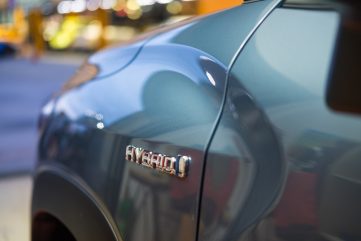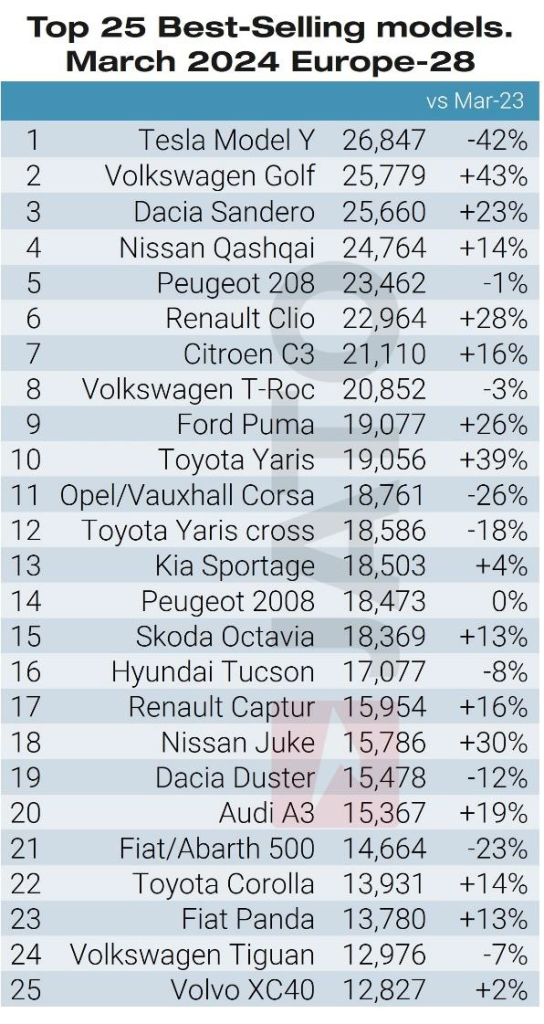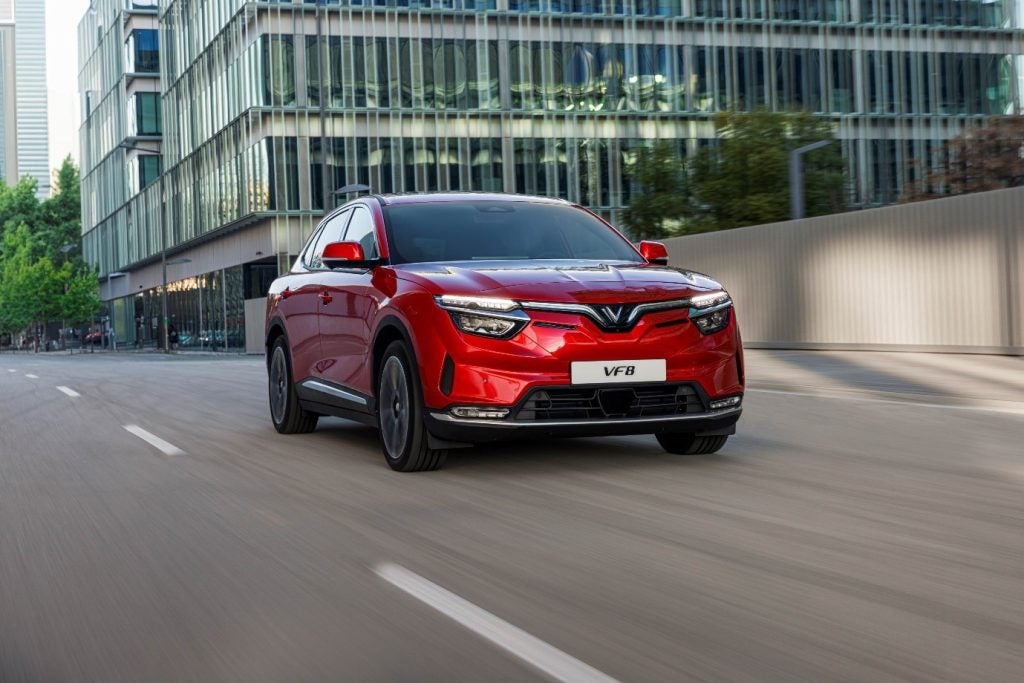
A drop in consumer confidence in electric vehicles (EVs) has sparked a surge in demand for hybrid electric vehicles (HEVs) in 28 European markets, with 382,700 units registered between January and March this year, the highest number of quarterly registrations for the category since 2021.
HEV volume was up 18% on the corresponding quarter in 2023, compared to year on year increases of 3.8% and 4.8% for EVs and the overall new car market respectively, according to JATO Dynamics.
This growth was even stronger when compared to the same period in 2022 (+50%). By contrast, the EV market and overall market had grown by 39% and 23% respectively.
“Consumers are familiar with hybrid vehicles; they’ve been in the market for more than two decades now. For many drivers, they are now the best option: cheaper than EVs at point of purchase and not reliant on public charging infrastructure that simply isn’t there in many markets,” JATO said.
Its data for four of the largest European markets showed average retail price of a HEV in February 2024 was 11% and 21% lower than that of petrol (including mild hybrid electric vehicles, or MHEVs) and diesel vehicles, respectively. By contrast, plug-in hybrid cars (PHEVs) were the most expensive, trading at an average retail price of EUR74,800.
“Hybrid cars have an advantage over EVs in that they are self charging while they are 27% cheaper than an electric model on average. Why would you pay more for a vehicle that is more limited in terms of range and charging?” JATO said.
How well do you really know your competitors?
Access the most comprehensive Company Profiles on the market, powered by GlobalData. Save hours of research. Gain competitive edge.

Thank you!
Your download email will arrive shortly
Not ready to buy yet? Download a free sample
We are confident about the unique quality of our Company Profiles. However, we want you to make the most beneficial decision for your business, so we offer a free sample that you can download by submitting the below form
By GlobalData
Chinese OEMs lose traction
China’s OEMs lost market share in March, a significant trend given their growing influence in Europe in recent years. Last month, registrations of cars manufacturered by Chinese car brands totalled 33,000 units (including MG), an increase of just 0.7% on March 2023. Electric models accounted for 36% of this total. In March 2024, electric cars produced by Chinese brands represented 6.1% of total BEV registrations.
According to JATO, the drop in overall car registrations in March translated to fewer sales for both legacy firms and Chinese OEMs.
“China’s OEMs have not been immune to the worsening situation in Europe’s new car market. In addition to this, they may also be feeling the impact of increased negative scrutiny brought on by the European Commission’s investigation into Chinese EV imports.”
MG accounted for more than half (61%) of Chinese EV registrations in March, followed by BYD (24%) and Great Wall (5%). Registrations of MG models in March declined by 38% year on year while registrations of BYD vehicles rose from 427 units to 2,892 units over the same period.
Tesla leads BEV market, despite slowdown
Tesla led the ranking for BEVs in Europe with 39,000 units registered in March.
However, this marked a 36% drop in registrations compared to March 2023 while Tesla’s share of the BEV market dropped from 27.8% in March 2023 to 19.9% last month.
Despite the drop in market share, Tesla was well ahead of other OEMs for BEV registrations, with BMW placing second after recording a 60% year on year increase. Volvo also performed well with a 70% increase, due largely to the success of the EX30, Europe’s third most-registered EV behind the Tesla Model Y and Model 3. The strong results from BMW and Volvo helped offset significant drops at Tesla, Volkswagen, Renault and MG.
VW Golf returns
Notably, the Golf was Europe’s second most registered car in March, with volume rising by 43%. Its latest updates could help to explain this rapid growth. The Dacia Sandero, the top seller in Q1 2024, the Renault Clio, Ford Puma and Toyota Yaris were the other success stories in the month.
In terms of new models, the Volvo EX30 shone in March with almost 7,600 units registered, making it the brand’s third most popular model behind the XC40 and XC60. Other strong players last month were the Honda ZR-V, registering almost 2,600 units, the Honda E:NY1 with 2,290 units, the BMW i5 with 2,168 units, the Mitsubishi Colt with 1,635 units and the BMW iX2 with 1,331 units. Lexus registered 1,151 units of its LBX, Kia registered 1,032 units of the EV9, Fiat registered 959 units of the 500, and Mercedes registered 948 units of the CLE.

Europe’s new car market struggled in the first three months of the year as persistently high inflation and interest rates led to a slowdown in demand with year on year declines in 23 countries and only 16 markets experiencing any growth in Q1 2024. In March, registrations totalled 1,377,541 units a decrease of 2.7%. However, registrations in Q1 2024 were up 4.8% on Q1 2023, with 3,380,048 units registered in total in the first three months of the year.
JATO said: “The average price of a new car is still prohibitively high and consumers are understandably hesitant about making the shift from petrol- and diesel-powered vehicles to electric models.
“Instead of embracing the shift, uncertainty over regulation and a lack of clarity on incentives available for EVs in many European markets is putting off potential buyers.
“Concerns about the lifecycle of the batteries in these vehicles is another source of concern among consumers.”






